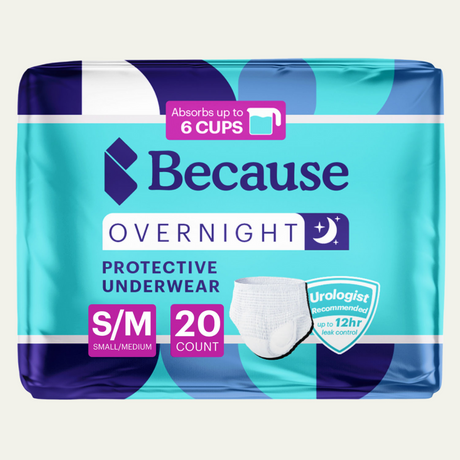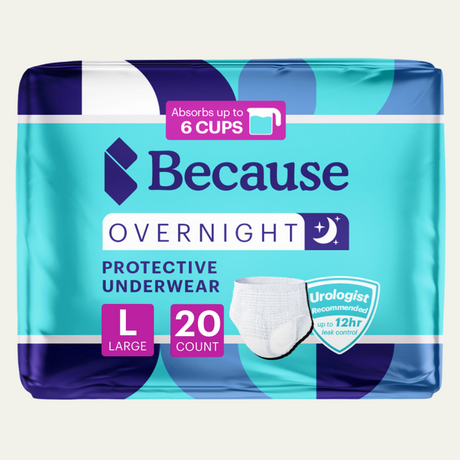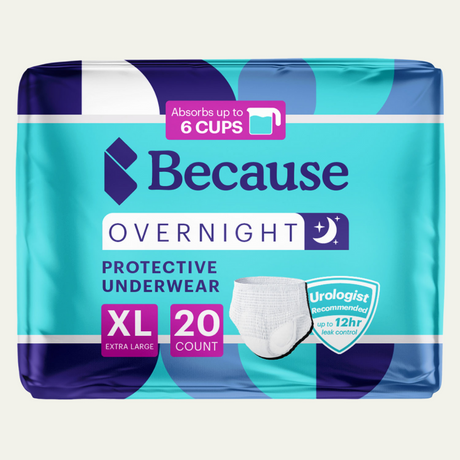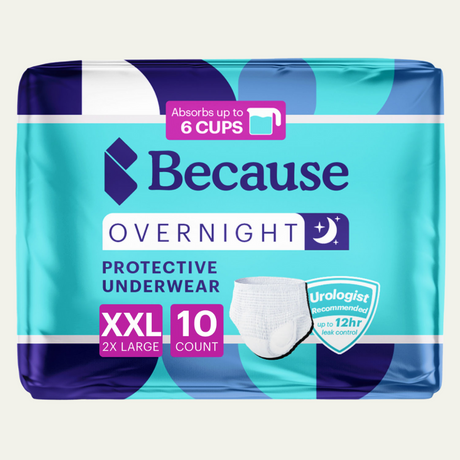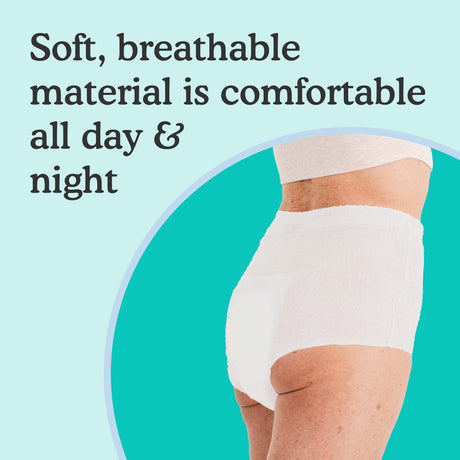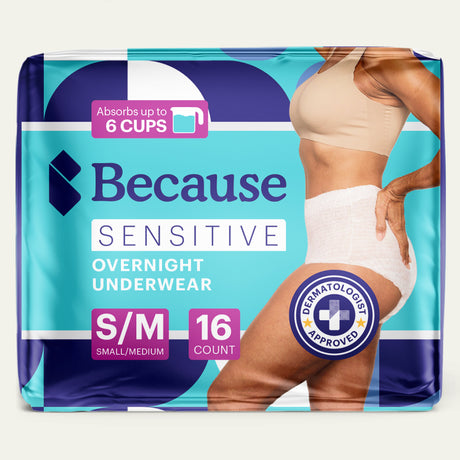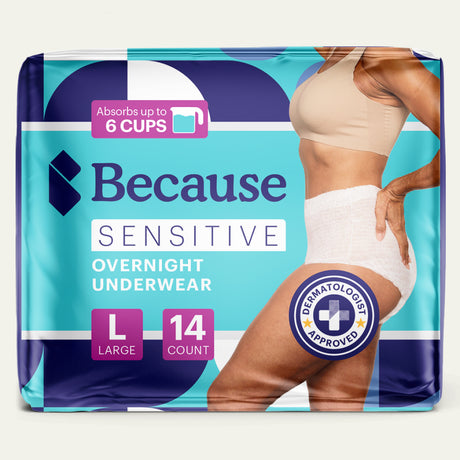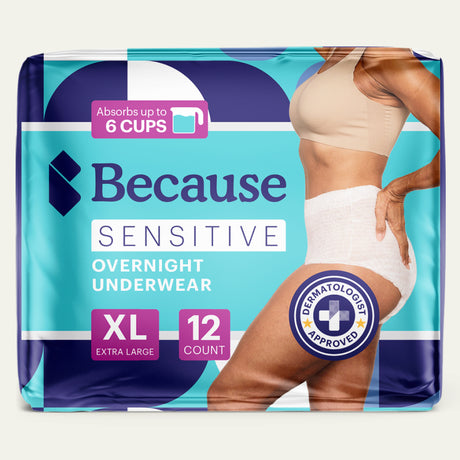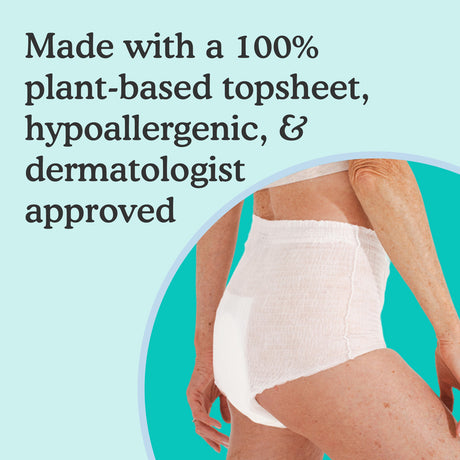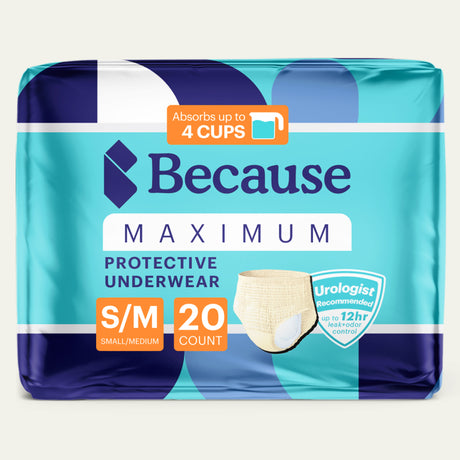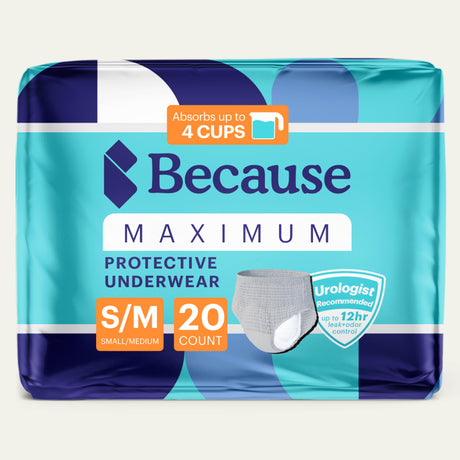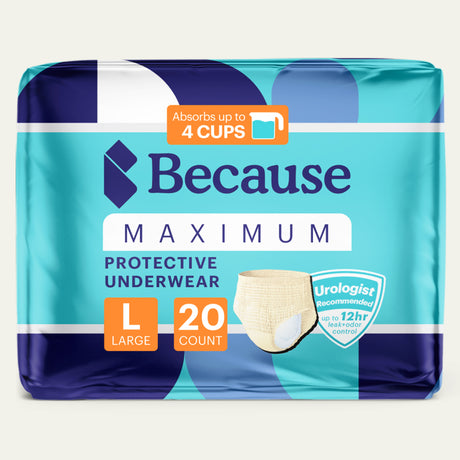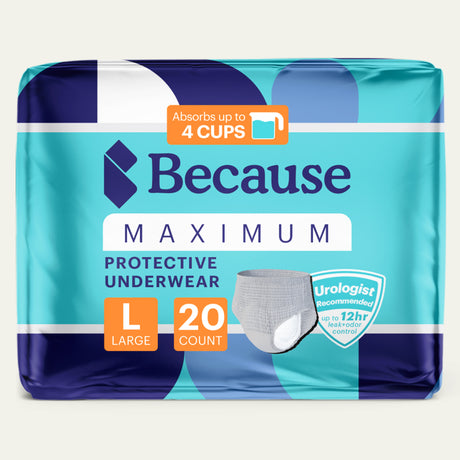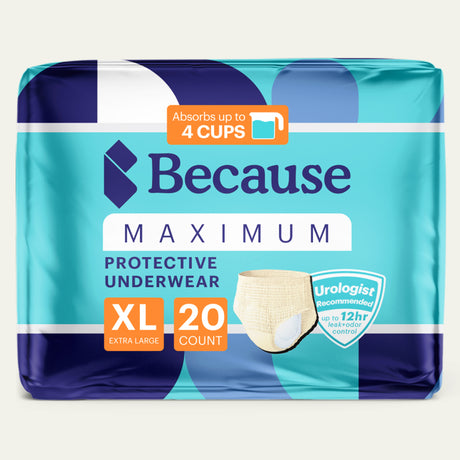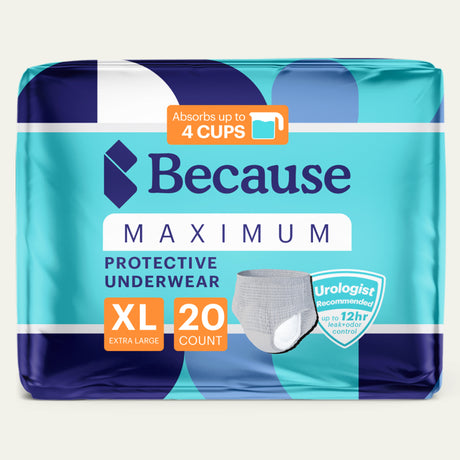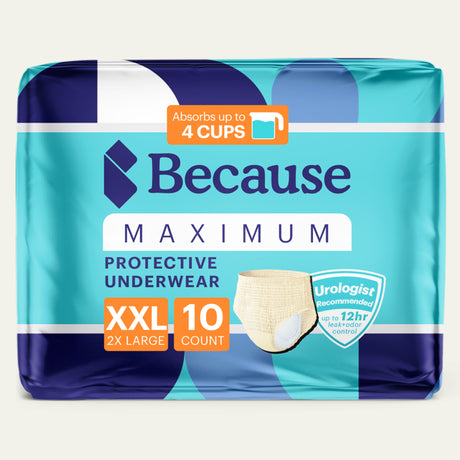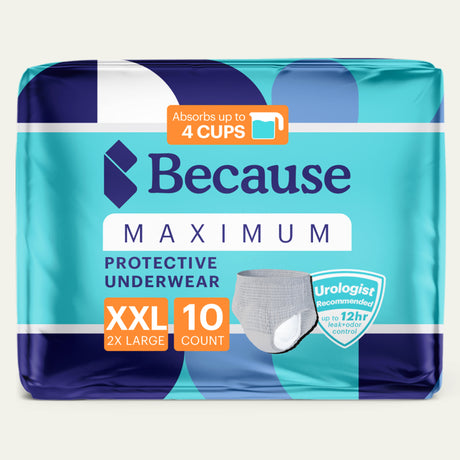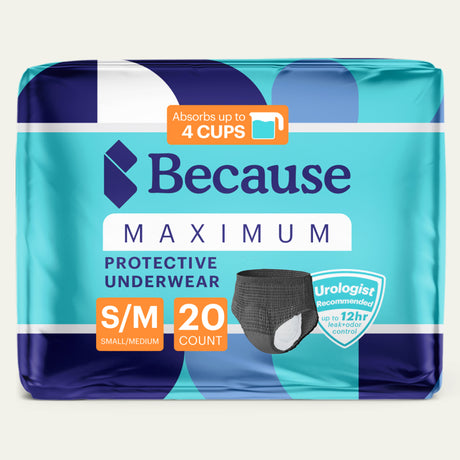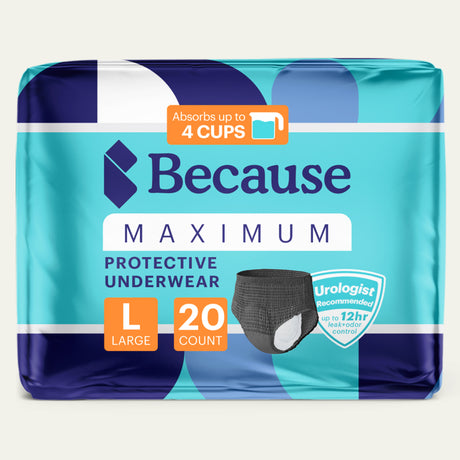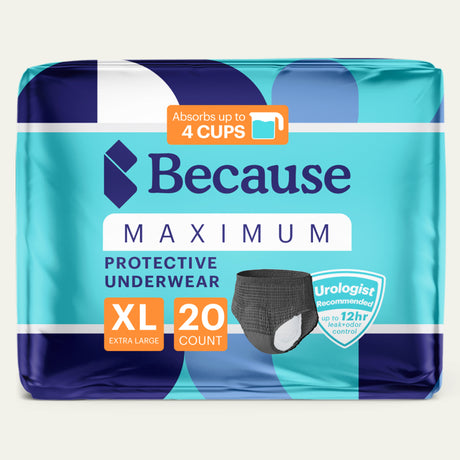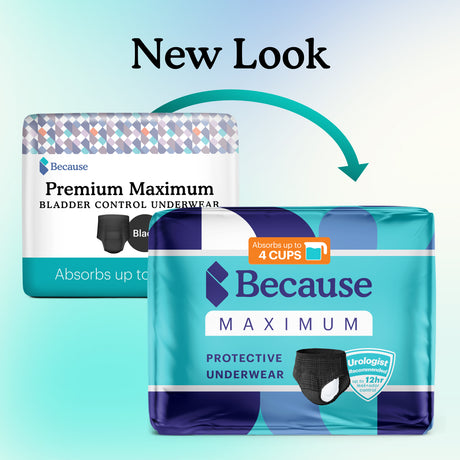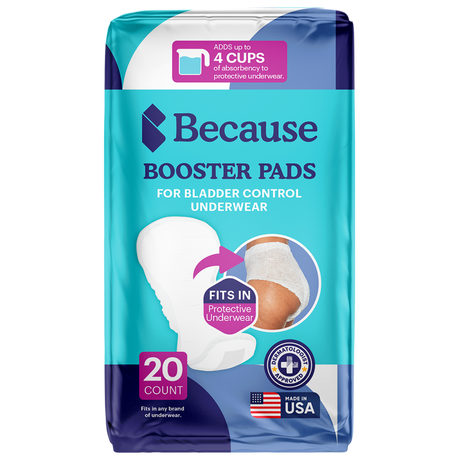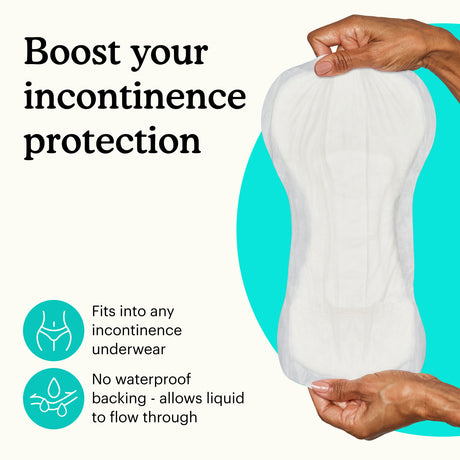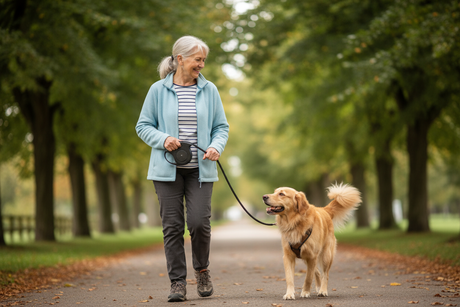Visiting family should be a source of joy, not anxiety. But for those managing urinary incontinence, the fear of leaks or accidents can cast a shadow over these special moments. You deserve to enjoy time with your loved ones without the constant worry of bladder control. This article provides a roadmap to help you prepare for family visits, manage unexpected situations, and focus on building stronger connections.
Key Takeaways
- Honest conversations build stronger family ties: Sharing your needs with family creates a supportive environment and strengthens your bond, making visits more enjoyable.
- A little planning goes a long way: Packing discreetly, anticipating bathroom needs, and creating a comfort kit can ease anxiety and boost your confidence.
- Self-care is essential: Prioritizing your well-being through mindfulness, maintaining routines, and seeking support helps you manage incontinence and enjoy family time to the fullest.
What Are Bladder Issues?
Bladder issues encompass a range of conditions that affect how your body stores and releases urine. These can range from minor inconveniences to more significant health concerns that impact daily life. Understanding the different types of bladder issues and what type of incontinence you may have is the first step toward finding the right management strategies.
Common Conditions & Absorbent Products
Several conditions can lead to bladder control problems and symptoms. Stress urinary incontinence (SUI) is a common type of urinary leakage. It happens when physical movements like coughing, sneezing, or exercising put pressure on your bladder, causing involuntary leaks even if your bladder isn't full. Other bladder issues include urge incontinence (a sudden, intense urge to urinate followed by leakage), overflow incontinence (frequent or constant dribbling because the bladder doesn't empty completely), overactive bladder (a constant feeling of urge to urinate even if you have just used the toilet), and mixed incontinence (a combination of different types).
Managing urinary incontinence often involves a combination of lifestyle adjustments, exercises, and absorbent products. Products like incontinence underwear, pads, and guards offer different levels of absorbency to meet individual needs, providing a discreet and reliable solution for managing leaks. For some, medical devices like catheters, urethral inserts, or pessaries might be appropriate.
Impact on Daily Life
Urinary incontinence can significantly impact daily life, affecting more than just the physical aspects. Many individuals experience emotional distress, including embarrassment, anxiety, and even depression. These feelings can lead to social isolation, as people may limit their activities and avoid social gatherings due to fear of leaks or accidents. One study highlights the substantial impact of urinary incontinence on quality of life.
The prevalence of urinary incontinence is widespread, affecting millions and often leading to significant lifestyle changes. Urocare London points out the extensive impact of urinary incontinence in the UK, demonstrating how these issues can disrupt daily routines and create emotional burdens.

Communicate Openly
Visiting family can be a joyful experience, but it can also bring unique challenges when dealing with urinary incontinence. Open communication is key to navigating these situations with grace and maintaining strong family bonds. Talking about your needs can feel vulnerable, but it creates a foundation of trust and understanding, making the visit more comfortable for everyone.
Build Trust with Family
Sharing about your urinary incontinence can feel like a big step, but it’s the best way to build trust and strengthen family connections. When we communicate openly about health challenges, it creates a safe and supportive environment. Families with healthy communication develop trust and form stronger bonds, leading to a more relaxed and enjoyable visit. This open dialogue fosters a sense of security and allows family members to offer meaningful support. It also normalizes conversations about health, making it easier for everyone to share their needs and concerns.
Address Concerns
It's natural to have concerns about how urinary incontinence might affect your visit. Rather than letting these worries build, address them proactively. Talking to your family beforehand can alleviate anxiety and prevent misunderstandings. However, addressing concerns early is always better than waiting for things to escalate. A simple conversation can make a world of difference in setting a comfortable tone for your stay. This proactive approach can also help your family prepare and ensure they have what they need to support you.
Benefits of Sharing
Sharing your experience with urinary incontinence, even if it feels difficult, offers significant benefits. Open communication improves patient experiences and outcomes, and this principle extends to family settings as well. Being upfront with your family allows them to understand your needs and offer practical support. Honest conversations about chronic illnesses, like incontinence, are crucial for creating a supportive environment. This transparency can also help reduce any stigma associated with urinary incontinence, fostering a more understanding and compassionate family dynamic. Remember, healthy communication benefits everyone's well-being, both physically and emotionally. By creating a space for open dialogue, you empower yourself and your family to manage the situation with greater ease and confidence.
Prepare for Your Visit
A little planning can go a long way in making your family visit more comfortable and enjoyable. These tips will help you feel prepared and confident.
Pack Discreetly
When packing, choose urinary incontinence products that are discreet and easy to manage. If you are going to be traveling a long distance and have limited access to bathrooms, ensure you are wearing heavy absorbency bladder protection. It may also be a good idea to carry Booster Pads to add additional absorbency to your urinary incontinence underwear while also making changing easier. Other products to consider bringing are: barrier creams, cleansing wipes, cleansing sprays, odor sprays, and discreet disposal bags. Consider packing a few extra products than you think you’ll need, just in case. A small, separate bag within your luggage can keep everything organized and readily accessible.
Plan Bathroom Access
Knowing where the bathrooms are located and how easily accessible they are can ease any potential anxiety. If you’re unsure, reach out to your family beforehand and ask about bathroom locations. This can help you plan your movements throughout the house and minimize any stress.
Create a Comfort Kit
Packing a comfort kit with essentials like extra bladder control products, Because Cleansing Wipes, and a change of clothes can provide extra reassurance. This kit can be your personal backup plan, allowing you to address any unexpected leaks quickly and discreetly. Having these items on hand can significantly reduce worry and help you focus on enjoying your time with family.
Manage Fluids
While staying hydrated is important, managing your fluid intake, especially before longer outings or events, can be helpful. This doesn’t mean restricting fluids entirely, but rather being mindful of your consumption. Restricting fluids can lead to increased irritation of the urethra, bladder, and urinary tract system causing increased urge to urinate and thus cause you to leak urine.

Stay Confident During Family Time
Family time should be about connection and joy, not worry. Here's how to stay present and confident during your visit, even with incontinence:
Focus on Quality Time
It's easy to let worries about bladder leaks overshadow your visit. Instead, concentrate on what truly matters: spending quality time with your loved ones. Remember why you're there—to laugh, share stories, and create memories. When you focus on these positive interactions, anxieties about incontinence naturally recede. Prioritizing meaningful conversations and shared experiences strengthens family bonds and improves everyone's well-being. Incontinence can impact social life and even lead to depression, so focusing on quality time is key.
Embrace Your Journey
Dealing with incontinence is a personal journey, and sharing aspects of it with your family can build deeper connections. Open communication is the cornerstone of any strong relationship. Consider having a conversation with your family about your experience with incontinence. It doesn't have to be a big announcement; a simple, honest chat can foster understanding and create a supportive environment. Healthy
Practice Positive Self-Talk
Be kind to yourself. Incontinence is a medical condition, not a personal failing. Replace negative thoughts with positive affirmations. Remind yourself that you're managing your condition proactively and that it doesn't define you. This positive self-talk creates a sense of empowerment and helps you approach family interactions with confidence. When you feel good about yourself, it's reflected in your interactions with others, creating a more positive and enjoyable experience for everyone. Open and honest communication creates a supportive atmosphere.
Choose Comfortable Clothes
Practicality and comfort can go hand in hand. Opt for clothing that makes you feel good and offers discreet management of potential leaks. Loose-fitting styles, darker colors, and breathable fabrics can provide extra confidence and comfort. Knowing you're prepared for any situation allows you to relax and enjoy your time with family without worry. Choosing comfortable clothing can help discreetly manage incontinence.
Create a Supportive Environment
When dealing with incontinence, a supportive environment can make all the difference. It’s not just about managing the physical aspects; it's about fostering understanding and compassion within your family. This can strengthen bonds and improve everyone's well-being.
Turn Challenges into Connections
Talking openly about incontinence, while sometimes difficult, can actually bring families closer. It creates space for honesty and vulnerability, allowing you to express your needs and concerns. When families face challenges together, they often emerge stronger and more connected. This shared experience can foster empathy and understanding, transforming a potential source of stress into an opportunity for growth. Effective communication is key, not just within the family, but also with healthcare providers, ensuring everyone is on the same page and working together toward the best possible outcome.
How Support Improves Health
Open communication about health challenges, including incontinence, has a profound impact on emotional well-being. Sharing your experience with loved ones can alleviate feelings of isolation and create a sense of shared understanding. This is especially crucial when dealing with chronic conditions, where ongoing support is essential. Open communication can help prevent misunderstandings and reduce emotional distress for both the person experiencing incontinence and their family members. Family communication plays a vital role in coping with chronic illness, fostering resilience and improving overall quality of life.
Manage Anxiety
Visiting family can sometimes be stressful, even without the added worry of incontinence. If you're feeling anxious, remember you're not alone. Many people experience similar feelings. Try these practical tips to help manage anxiety and enjoy your time with loved ones.
Mindfulness Techniques
Mindfulness exercises can help you relax and reduce stress. Deep breathing is a simple yet powerful technique you can practice anywhere, anytime. Close your eyes, inhale deeply through your nose, hold for a few seconds, and exhale slowly through your mouth. Repeat this several times, focusing on the sensation of each breath. Meditation and progressive muscle relaxation, where you tense and release different muscle groups, can also be effective in calming your mind and body. Even a few minutes of these practices can make a difference.
Handle Unexpected Situations
One way to reduce anxiety is to feel prepared. If you experience urge incontinence, planning ahead can ease your worries. Consider decreasing your fluid intake before leaving and mapping out restroom locations at your destination. Following a toileting schedule can also provide a sense of control. Packing extra incontinence products in a discreet bag will give you peace of mind, knowing you're prepared for any situation.
Communicate Your Needs
Open and honest communication with your family can significantly reduce anxiety. Sharing your concerns and needs with trusted family members can create a supportive environment. It can feel vulnerable to talk about incontinence, but open communication strengthens family bonds and builds trust. Talking about your needs allows your family to understand and offer support, making the experience more comfortable for everyone. Even a simple conversation can make a world of difference.
Enjoy Activities
While managing incontinence might require some adjustments, it shouldn't prevent you from enjoying quality time with your family. The key is open communication and a bit of planning. With a proactive approach, you can fully participate in activities and create lasting memories.
Adapt Plans
It's natural to feel apprehensive about incontinence affecting your participation in family activities. However, remember that flexibility and open communication can make a world of difference. Talk to your family about your needs and explore ways to adapt plans. Perhaps you can choose restaurants with easily accessible restrooms or suggest shorter outings. Adapting plans demonstrates consideration for your needs and empowers you to engage comfortably.
Suggest Inclusive Activities
When planning activities, consider options that everyone can enjoy, regardless of their physical limitations. Suggesting inclusive activities creates an environment where everyone feels valued and can participate without feeling self-conscious. This approach fosters healthy communication and strengthens family bonds. A board game night, a relaxing picnic in a park with nearby facilities, or a family movie night at home can be just as enjoyable as more strenuous activities.
Balance Social & Personal Time
Finding the right balance between engaging in social activities and taking personal time is crucial for managing incontinence. While connecting with family is important, remember to schedule breaks for yourself to recharge and manage your needs discreetly. This could involve stepping away for a few minutes to freshen up or simply finding a quiet space to relax. Open communication within the family creates a safe and supportive atmosphere, making it easier to balance social time with personal needs. This balance ensures you can fully enjoy family time without feeling overwhelmed or anxious.

Practice Self-Care During Your Stay
It's easy to get caught up in the excitement (and sometimes stress) of visiting family, but remember to prioritize your well-being. Managing incontinence can be challenging, so taking care of your mental and physical health is key to a positive experience.
Prioritize Well-being
Urinary incontinence can impact your emotional well-being, sometimes leading to feelings of anxiety or isolation. Prioritizing self-care is crucial. Simple acts like taking a quiet walk, listening to music, or practicing deep breathing can make a big difference in managing stress and improving your mood. Remember, managing your mental health is just as important as managing your physical health. Studies show that incontinence can affect social life and mental well-being, so carving out time for yourself is essential.
Maintain Your Routine
Sticking to your regular routine as much as possible can provide a sense of normalcy and control. If you typically follow a schedule for using the bathroom, try to maintain it while visiting family. This might involve communicating your needs discreetly to your host or planning your day around easy bathroom access. This can help reduce accidents and ease anxiety. Even small adjustments, like decreasing fluid intake before outings, can be helpful.
Seek Help
Don't hesitate to reach out for support if you need it. This could involve talking to your healthcare provider about any concerns or seeking advice from a trusted friend or family member. Remember, you're not alone, and there are resources available to help you. If you're experiencing new or worsening symptoms, talking to a healthcare professional is always a good idea.
Looking for support? Join one of our private incontinence support groups!
Women's Incontinence Support Group
Men's Incontinence Support Group
Follow Treatment Plans
If you have a prescribed treatment plan for incontinence, be sure to follow it consistently during your visit. This might include taking medication as directed, performing pelvic floor exercises, nerve stimulation, lifestyle adjustments, or even procedures. Pelvic floor exercises, such as kegel exercises, can help strengthen the bladder muscles leading to increased bladder control, decreased feelings of urge, and less leaks. Another strategy you could use is bladder training. Bladder training involves stretching the time between bathroom trips out until you are only going to the bathroom a few times a day. Maintaining your treatment plan will help manage your symptoms and allow you to enjoy your time with family more fully.
Embrace Family Connections
Family connections are vital, especially when you're managing a health challenge. Nurturing these bonds can provide comfort, reduce stress, and improve your overall well-being. Here's how to strengthen those family ties during and after your visit:
Reflect on Positive Experiences
Think back on the good times you shared with your family during your visit. Did you laugh over old photos? Enjoy a delicious meal together? Maybe you simply enjoyed a quiet conversation. Focusing on these positive moments reinforces the strength of your bond and reminds you of the joy your family brings. Open communication, where everyone feels comfortable expressing their love and admiration, creates a strong foundation for any relationship. It helps build trust and mutual understanding, making it easier to discuss any challenges that might arise, including health concerns.
Plan Future Visits
Just like any healthy partnership, maintaining family connections requires ongoing effort. Start planning your next visit while the positive memories are still fresh. Discussing future plans creates anticipation and gives everyone something to look forward to. This proactive approach also demonstrates your commitment to maintaining strong family ties. It opens the door for continued communication and strengthens the sense of connection between visits. Even a simple phone call or video chat can bridge the gap and keep those bonds strong.
Continue Open Dialogue
Open communication is the cornerstone of a positive patient experience, and it extends to family relationships as well. Keeping the lines of communication open after your visit is crucial, especially when dealing with health issues. This doesn't mean you need to discuss every detail of your health, but it does mean creating a safe space where everyone feels comfortable sharing their thoughts and feelings. Remember, honesty is key. Being open about your experiences, even the challenging ones, can help your family understand your needs and offer better support. This ongoing dialogue fosters empathy and strengthens the bonds of love and support within your family. It also helps to normalize conversations about health, making it easier to address any concerns that may arise in the future. Being open with children about chronic illnesses can alleviate their anxieties and foster a supportive family environment.
Related Articles
- Tips for Traveling with Urinary and Bowel Incontinence
- How to Prepare for TSA Screenings with Incontinence Products
- Proper Disposal of Incontinence Pads: A Helpful Guide
- Drinks & Foods That Irritate the Bladder + Alternatives
- Incontinence and Motherhood: Practical Tips after Childbirth
- Building Better Bladder Habits in 2025
Frequently Asked Questions:
What treatments are there for urinary incontinence?
Treatments include simple lifestyle adjustments like avoiding bladder irritants or adjusting fluid intake, medications that reduce urge or help prevent bladder spasms, supplemental estrogen, pelvic floor exercises to strengthen or loosen the pelvic floor muscles, injections such as botox and bulkamid, nerve stimulation therapies, and surgeries.
What are the most common types of urinary incontinence?
The most common types are urge incontinence, frequently associated with overactive bladder (OAB), and stress incontinence. Urge incontinence causes constant feelings of urge, even if you just went to the bathroom. People suffering from urge incontinence often go the restroom, but then don't actually void any urine. Stress incontinence is highlighted by leaks when pressure is exerted on the pelvic floor muscles. This can occur when you jump, exercise, laugh, cough, or sneeze. Finally, overflow incontinence is common in men with prostate issues.
What are some of the most common causes of bladder control issues?
Weakness of the pelvic floor muscles or the bladder muscles is a common cause of incontinence, particularly stress incontinence. Nerve damage or spasms from other underlying conditions is another common cause, this is associated with urge incontinence, reflex incontinence, and functional incontinence. Childbirth and pregnancy are common causes of incontinence in women due to the pressure and trauma sustained to the pelvic floor muscles, vaginal canal, and area around the urethra.
Sources:
Pizzol, D., Demurtas, J., Celotto, S., Maggi, S., Smith, L., Angiolelli, G., Trott, M., Yang, L., & Veronese, N. (2021). Urinary incontinence and quality of life: a systematic review and meta-analysis. Aging clinical and experimental research, 33(1), 25–35. https://doi.org/10.1007/s40520-020-01712-y
UroCare London. (2024, Sept. 3). How Does Urinary Incontinence Affect Daily Life? https://www.urocarelondon.com/blog/how-urinary-incontinence-affects-daily-life/
Victoria State Government. (2022, Feb. 24). Relationships and communication. https://www.betterhealth.vic.gov.au/health/healthyliving/relationships-and-communication


